|
| Opening Remarks |
| Friday, October 9, 2020 |
| 8:15 AM–8:30 AM EDT |
| Online |
| Chair: Mark A. Mattaini (Jane Addams College of Social Work-University of Illinois at Chicago) |
The conference chair will present opening remarks. |
|
| |
| |
|
| A Generation At Risk: Family Separation Policies Across the Country and Its Impact on American Children |
| Friday, October 9, 2020 |
| 8:30 AM–9:30 AM EDT |
| Online |
| Domain: Systems |
| Chair: Mark A. Mattaini (Jane Addams College of Social Work-University of Illinois at Chicago) |
| CE Instructor: Mark A. Mattaini, Ph.D. |
| Presenting Author: CARLOS GUEVARA (UnidosUS) |
| Abstract: In the spring of 2018, America watched in horror as nearly 3,000 children were separated from their parents on the southern border. Civil society groups have righteously and steadfastly responded to these harmful policies. What is often lost in the national conversation today is a deeper recognition that what has transpired at the border is just the tip of a very large iceberg. There are nearly 6 million American children in the country living with an undocumented parent. These families could be separated by deportation at any time. In 2019, UnidosUS published a report entitled, “Beyond the Border: Family Separation in the Trump Era.” It considers the consequences of a continued immigration policy status quo on these American children by looking at the intersection of immigration policy and health, education, and economic outcomes. The UnidosUS team has delved deeper into these issues including by examining the impact of the current immigration environment on K-12 student. We have also elevated these intersection in the press, including, in the context of a proposed housing policy change, in a New York Times Op-Ed by UnidosUS President and CEO, Janet Murguia. In short, UnidosUS believes that state-funded cruelty against immigrant communities imposes perhaps some of the steepest harms on American children, and that the nation is at a critical moment for action. |
| Instruction Level: Intermediate |
| |
| CARLOS GUEVARA (UnidosUS) |
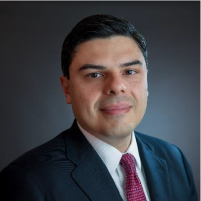 Carlos Guevara is the Associate Director for the UnidosUS Immigration Policy Project. Carlos leads UnidosUS’s immigration policy work, which focuses on advancing effective and humane federal immigration policies that promote and uphold family unity, protect workers’ rights, build on immigrant integration efforts, and improve the current immigration system. Headquartered in Washington, DC, UnidosUS is the largest national Hispanic civil rights and advocacy organization in the United States. Through its network of nearly 300 affiliated community-based organizations, UnidosUS reaches millions of Hispanics each year in 41 states, Puerto Rico, and the District of Columbia.
Prior to joining UnidosUS, Carlos was a Counselor in the Office of the Secretary at the U.S. Department of Homeland Security from 2014-2017. There, he worked on immigration policy issues under the Obama Administration. Before that, he served as a Staff Attorney at the Diocese of Grand Rapids, MI then Catholic Charities of Baltimore where he provided a wide range of Immigration Legal Services to low income immigrants.
Mr. Guevara earned his Juris Doctor from the University of Maryland Francis King Carey School of Law, and his bachelor’s degree from University of Virginia. He is a licensed attorney in Maryland. Carlos was born in Hermosillo, Mexico and grew up in San Antonio, Texas. |
|
| |
| |
|
| Immigration and Human Rights Symposium |
| Friday, October 9, 2020 |
| 9:30 AM–10:30 AM EDT |
| Online |
| Domain: Systems |
| Chair: Mark A. Mattaini (Jane Addams College of Social Work-University of Illinois at Chicago) |
| CE Instructor: Mark A. Mattaini, Ph.D. |
| Abstract: In response to Guevara’s examination of current immigration policies and their repercussions, the panelists will present behavior analytic interpretations of this issue and offer strategies for behavior scientists to engage in activism and human rights advocacy efforts. Beginning with a better understanding of the history of behaviorism in supporting humane immigration policies, the panelists will offer a call to action for culturo-behavior scientists to extend this analysis in light of existing conditions. Ongoing research designed to change verbal behavior and promote social activism using stimulus control procedures and shaping will be discussed as well as the critical role of graduate students and future behavior analysts in addressing global humanitarian crises. |
| Instruction Level: Intermediate |
| Learning Objectives: At the conclusion of the presentation, participants will be able to: (1) understand behaviorism’s legacy of advocacy for progressive social change in general and for humane immigration policies in particular; (2) understand how one can utilize behavior analytic and cultural behavior science in the service of personal progressive values; (3) appreciate the skills beyond technical ones that are needed to apply behavioral analyses effectively in the service of social activism; (4) generate ideas for cultural behavior science research, social action, and education/training that promote humane immigration policies; (5) identify one or more existing societal-level problems that influence their professional practice possibly maintained through group contingencies within the behavior analytic community; (6) analyze how differences between one’s own cultural variables and learning history and those of their clients’ or co-workers may “significantly affect” professional work; (7) list resources shared that provide support to behavior analysts seeking to extend the science and practice of behavior analysis to solving local or global humanitarian crises; (8) assess environmental variables and/or behaviors amenable to change that facilitate scaling of behavior analysis to societal-level problems such as immigration, migration, sustainability, climate crisis, income inequality, etc.; (9) identify injustices and dangers experienced by vulnerable populations in borderlands; (10) identify five component skill sets that may lead to more compassionate responses to the suffering of vulnerable populations; (11) describe the process of translating values into actions. |
| |
Cultural Behavior Science and Humane Immigration Policies: Let’s Go Back to the Future! |
| RICHARD RAKOS (Cleveland State University) |
| Abstract: Behaviorism’s history of progressive social-cultural analysis and action started with its founder, John B. Watson. Among the social issues he addressed most stridently was the anti-immigration fervor that swept the United States during and after World War I. This nativism, energized by a surging eugenics movement that included virtually all the leading figures in US psychology, triumphed with the passage of the Johnson-Lodge Immigration Act of 1924 that established discriminatory “national origin quotas.” In this context, I discuss Watson’s famous “give me a dozen healthy infants” challenge, usually dismissed as ridiculous ideological hyperbole, as embedded in his scientific rebuttal to the eugenicists who championed the 1924 act. Unfortunately, though scientifically advocating for humane immigration policies is a legacy of behaviorism, a review of the literature since Watson indicates that immigration rarely has been an interest of cultural behavior science. However, given current anti-immigration policies and the criteria used to accept applicants, it is time for behaviorism to reclaim this legacy. Toward this end, I propose that an immigration policy grounded in a behavior analytic model offers a scientific alternative to current policies that is both humane in its treatment of applicants and beneficial in important ways to US society. I suggest what might comprise such a behaviorally-based immigration policy and conclude by indicating several different ways -- research, social activism, and graduate student education – that cultural behavior science can return to one of its important roots and join other sciences in using its understandings to inform and promote humane immigration policies. |
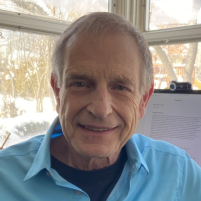 I received my Ph.D. in clinical psychology from Kent State University and now am Emeritus Professor of Psychology at Cleveland State University. I retired in 2016 after 37.5 years at CSU, most recently as associate dean for faculty and program development in the College of Sciences and Health Professions. I have concentrated my publications and presentations in the areas of assertiveness training, self-management, law and psychology, and behavioral-cultural analysis of social, political, and societal issues that relate to improving equity, cooperation, and justice among people. I served as Editor of Behavior and Social Issues (and its predecessor journals Behaviorists for Social Action Journal and Behavior Analysis and Social Action) from 1981-1993 and as associate or consulting editor of BSI from 1993 to the present. I also served on the editorial board of Law and Human Behavior from 2000-2016 and am a Fellow in the American Psychological Association. Since retiring from CSU, I have maintained my behavior analytic scholarly activities while expanding my private clinical practice significantly, focusing on the behavioral out-patient treatment of persons experiencing difficulties with anxiety, stress, depression, self-control, obsessions and compulsions, social/interpersonal relationships, and parenting/child management. I received my Ph.D. in clinical psychology from Kent State University and now am Emeritus Professor of Psychology at Cleveland State University. I retired in 2016 after 37.5 years at CSU, most recently as associate dean for faculty and program development in the College of Sciences and Health Professions. I have concentrated my publications and presentations in the areas of assertiveness training, self-management, law and psychology, and behavioral-cultural analysis of social, political, and societal issues that relate to improving equity, cooperation, and justice among people. I served as Editor of Behavior and Social Issues (and its predecessor journals Behaviorists for Social Action Journal and Behavior Analysis and Social Action) from 1981-1993 and as associate or consulting editor of BSI from 1993 to the present. I also served on the editorial board of Law and Human Behavior from 2000-2016 and am a Fellow in the American Psychological Association. Since retiring from CSU, I have maintained my behavior analytic scholarly activities while expanding my private clinical practice significantly, focusing on the behavioral out-patient treatment of persons experiencing difficulties with anxiety, stress, depression, self-control, obsessions and compulsions, social/interpersonal relationships, and parenting/child management. |
| |
I Am One of Skinner’s Uncommitted |
| MEGAN KIRBY (University of South Florida) |
| Abstract: Although majority of behavior analytic practitioners work in a medical/outpatient model of ABA service delivery, a growing number of behaviorists express a desire to collaborate with other professions and apply the science of behavior to solve global crises. This talk will share one BCBA’s experience pivoting a career as a Director of ABA Services to graduate researcher designing educational interventions for displaced children (i.e., migrants, refugees). The purpose of the presentation is to educate others about what it may entail to be one of Skinner’s “uncommitted” (Skinner, 1987) and hopefully inspire fellow behavior analysts to combat the “inertia of affluence” (Mattaini & Aspholm, 2016) and join the fight to save the world with behavior analysis. |
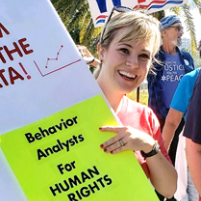 Megan Sullivan Kirby, BCBA (pronouns: she/her/hers) is a doctoral student and graduate research assistant at the University of South Florida (Advisor: Trina Spencer, PhD, BCBA-D). Having co-founded UncomfortableX in 2017, she engages in personal and professional interests linking the application of behavior analysis to social justice, education and human rights. Her primary research interests involve the measurement of narrative language in early childhood and designing storytelling interventions to support educational programming for displaced children in refugee camps around the world. Megan Sullivan Kirby, BCBA (pronouns: she/her/hers) is a doctoral student and graduate research assistant at the University of South Florida (Advisor: Trina Spencer, PhD, BCBA-D). Having co-founded UncomfortableX in 2017, she engages in personal and professional interests linking the application of behavior analysis to social justice, education and human rights. Her primary research interests involve the measurement of narrative language in early childhood and designing storytelling interventions to support educational programming for displaced children in refugee camps around the world. |
| |
| We Are All in This Together: Changing Individual Behavior to Support Humane Policies |
| SHAHLA ALA'I (University of North Texas) |
| Abstract: Global injustices and dangers experienced by vulnerable populations are becoming more and more apparent. Many of these occur in borderlands and involve complex responses to people of different national, racial and ethnic identities. The purpose of this presentation is to share the process and preliminary outcomes of an education project aimed to increase compassionate responses to suffering in vulnerable populations in borderlands. “Nur-e-Esperanza” is a collective learning project grounded in the philosophies of behaviorism, womanism, and the people’s science movement. Our approach involves inductive and participatory practices to increase the expansiveness and depth of social discourse within local communities. Specifically, we are developing and evaluating component training modules for: 1) Noticing and relating to the feelings of others, especially those that are very different than ourselves; 2) Noticing and evaluating the social justice relationships between ourselves, communities and institutions; 3) Noticing dimensions of social privilege, coercion and attraction; 4) Engaging in skilled dialogs between people of diverse lived experiences; and, 5) Engaging in the translation of values into strategic actions and reflections. Our topics center on race, gender, religion and nationality. Our dependent variables are changes in verbal behavior, feelings, and reported activism. The instructional design involves stimulus control procedures (systematic introduction and discrimination of increasingly complex classes of social justice/injustice examples) and collective shaping of noticing and engaging. The project is discussed in relation to the ways that understanding and changing individual behavior may support actions and policies that protect and enhance human life and reduce suffering. |
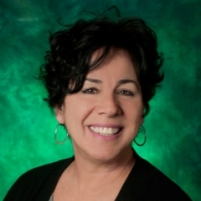 Shahla Ala’i received her B.S. from Southern Illinois University and her M.A. and Ph.D. from the University of Kansas. She is an Associate Professor in the Department of Behavior Analysis at the University of North Texas (UNT) and the director of the North Texas Autism Project (NTAP). NTAP is a service, training and research program working in cooperation with several global partners, with applied anthropologists, and with Easter Seals North Texas. Shahla is also a member of a social justice collective at UNT. This is an interdisciplinary effort designed to create a space for applied research and activism in social justice and includes faculty and students from Woman’s and Gender Studies, Applied Anthropology and Behavior Analysis. Shahla teaches classes on ethics, autism intervention, parent training, applied research methods, and behavior change techniques. Shahla served on the governing board of the Behavior Analysis Certification Board (BACB) and as a subject matter expert on supervision and on ethics. Shahla currently serves on the ABAI Practice Board and the APBA Diversity Ad Hoc Task Force. She has published and presented research on ethics in early intervention, play and social skills, family harmony, change agent training, and evidence-based practice. Her research is applied and grounded in a commitment to love and science. She has trained hundreds of master’s level behavior analysts who have gone on to serve families and communities with honor. Shahla has over four decades of experience working with families, particularly those from non-dominant cultural backgrounds. She travels and presents her work nationally and internationally to both professional and lay audiences. She was awarded an Onassis Foundation Fellowship for her work with families, was the recipient of UNT’s prestigious student selected “Fessor Graham" teaching award, and received the Texas Association for Behavior Analysis Career Contributions Award in 2019. |
|
| |
| |
|
| Implementing Behavior Analysis at Scales of Social Importance |
| Friday, October 9, 2020 |
| 11:00 AM–12:00 PM EDT |
| Online |
| Domain: Conceptual |
| Chair: Mark A. Mattaini (Jane Addams College of Social Work-University of Illinois at Chicago) |
| CE Instructor: Mark A. Mattaini, Ph.D. |
| Presenting Author: ROBERT HORNER (University of Oregon) |
| Abstract: The principles of behavior analysis hold great promise for addressing many of the major challenges faced in society. Yet the applications of behavior analysis remain limited in scope and breadth. This session will focus on the large-scale application of applied behavior analysis in educational settings. Emphasis will be given to identifying the core features of effective educational environments, and the process for implementing those features with high fidelity, sustainability, and at scales of social significance. Experience over the past two decades with implementation of positive behavioral interventions and supports (PBIS) in over 27,000 schools will be described. |
| Instruction Level: Intermediate |
| Learning Objectives: At the conclusion of the presentation, participants will be able to: (1) identify three trends currently affecting the adoption of applied behavior analysis in education; (2) define the critical elements needed to operationally define an educational “practice”; (3) describe the central role of “fidelity measurement” for large-scale adoption of behavioral practices; (4) define “contextual fit” as a core component for defining behavioral interventions that are used at scales of social significance. |
| |
| ROBERT HORNER (University of Oregon) |
 Rob Horner is an emeritus professor of special education at the University of Oregon. His research has focused on applied behavior analysis, positive behavior support, multi-tiered instructional systems, stimulus control, equity in education, and systems change. He has worked for the past 20 years with George Sugai in development and implementation of school-wide positive behavioral interventions and supports (PBIS). Over 27,000 schools are implementing PBIS nationally. Research, evaluation and technical assistance outcomes from this effort indicate that investing in the development of a positive social culture is associated with improved social, behavioral and academic gains for students. Dr. Horner has been the editor of the Journal of the Association for Persons with Severe Handicaps, co-editor of the Journal of Positive Behavior Interventions, and associate editor for both the Journal of Applied Behavior Analysis and the American Journal on Mental Retardation. Dr. Horner is recipient of multiple awards, including the 2002 AAMR Education Award, the 2006 ABA Public Service in Behavior Analysis Award, the 1996 APA Fred Keller Educational Researcher Award, and the 2014 AERA Distinguished Researcher Award. Rob Horner is an emeritus professor of special education at the University of Oregon. His research has focused on applied behavior analysis, positive behavior support, multi-tiered instructional systems, stimulus control, equity in education, and systems change. He has worked for the past 20 years with George Sugai in development and implementation of school-wide positive behavioral interventions and supports (PBIS). Over 27,000 schools are implementing PBIS nationally. Research, evaluation and technical assistance outcomes from this effort indicate that investing in the development of a positive social culture is associated with improved social, behavioral and academic gains for students. Dr. Horner has been the editor of the Journal of the Association for Persons with Severe Handicaps, co-editor of the Journal of Positive Behavior Interventions, and associate editor for both the Journal of Applied Behavior Analysis and the American Journal on Mental Retardation. Dr. Horner is recipient of multiple awards, including the 2002 AAMR Education Award, the 2006 ABA Public Service in Behavior Analysis Award, the 1996 APA Fred Keller Educational Researcher Award, and the 2014 AERA Distinguished Researcher Award. |
|
| |
| |
|
| Behavior Analysis and Social Activism |
| Friday, October 9, 2020 |
| 12:00 PM–1:00 PM EDT |
| Online, Lounge 1 |
| Chair: Richard F. Rakos (Cleveland State University) |
Join this networking hour to discuss the following topics and others related to social activism:
- How can behavior analysts be activists who use their professional skills in service of progressive goals through strategies such as advocacy and accompaniment?
- How can behavior analysts advocate for progressive goals in the course of their jobs (e.g., university instructor, clinician, administrator, etc.)?
- ABAI does not have its own ethics code; instead it relies on members to adhere to their “home discipline’s” ethics code. An ABAI ethics code that reflected environmental determinism would establish social activism as an ethical mandate because it would be arbitrary to limit a functional analysis to the individual level and ignore the higher-level systemic determinants of behavioral and social problems. This continuity of determinism implies that clients’ overall behavioral health requires activism to change harmful metacontingencies. NASW’s ethics code can serve as a model.
|
|
| |
| |
|
| Applying Technology of Applied Behavior Analysis to Problems of High Social Value |
| Friday, October 9, 2020 |
| 12:00 PM–1:00 PM EDT |
| Online, Lounge 2 |
| Chair: Robert H. Horner (University of Oregon) |
Join this networking hour to discuss how to apply ABA to problems of high social value and approaches that define core features and functional mechanisms. The process of implementation is important if ABA is to be applied at a large scale. In addition to effective interventions, how might we also emphasize (1) organizational systems; (2) stages of adoption; (3) personnel seletion, training, coaching, and feedback? What role might measuring fidelity implementation have on large scale adoption of ABA? |
|
| |
| |
|
| Conceptual Issues in Culturo-Behavior Science |
| Friday, October 9, 2020 |
| 12:00 PM–1:00 PM EDT |
| Online, Lounge 3 |
| Chair: Jonathan Krispin (Valdosta State University) |
Join this networking hour to discuss conceptual issues in CBS. Questions to consider include:
- What areas of conceptual investigation in Culturo-Behavioral Science do you think have the greatest potential for leading to a practical impact?
- How do we resolve any potential tension or impact between designed social system interventions and self-organized social movements?
- What are we missing that we need to integrate/investigate as Culturo-Behavioral Science expands?
Discussion will be open to any other topic of interest to attendees as well! |
|
| |
| |
|
| The Impact of Higher Education on Society |
| Friday, October 9, 2020 |
| 1:00 PM–2:00 PM EDT |
| Online |
| Domain: Systems |
| Chair: Mark A. Mattaini (Jane Addams College of Social Work-University of Illinois at Chicago) |
| CE Instructor: Mark A. Mattaini, Ph.D. |
| Presenting Authors: MARIA ANDERY (Pontifícia Universidade Católica de São Paulo), EMMANUEL TOURINHO (Universidade Federal do Para) |
| Abstract: Societies have always depended on education: it is through education—formal or not—that many operant repertoires and many culturo-behavioral practices are developed. In modern, complex societies higher education is crucial because of the techno-scientific basis and infrastructure upon which our societies are built. Institutions responsible for higher education are necessary because they are responsible for the replication of such knowledge. It is through higher education that socially relevant operant repertoires—replicated over millions of people—are developed. But the role of higher education is not the mere reproduction of knowledge or of patterns of behavior and culturo-behavioral practices. As institutions, colleges and universities are nowadays important sources of wealth, contributing directly for economic growth of local, regional and even national communities. Most crucially, as institutions, universities and colleges also contribute to the building of patterns of ethical and socially responsible behaviors: from within universities stem many new cultural practices that lead to social development and to the solving of cultural problems. Universities (as the institutions responsible for higher education) are linked with the decrease of violence, of social inequality, and of poverty, and with the increase of social awareness, democratic societies, and responsible public policies. Finally, universities—even when they are small and have only direct local influence—have a tendency to become part of a much larger system that is mostly concerned with shaping up positive behavior and social justice. |
| Instruction Level: Intermediate |
| Learning Objectives: At the conclusion of the presentation, participants will be able to: (1) define the social impact of higher education on communities and societies as outcomes of metacontingencies, macro-behavior, and macro-contingencies; (2) identify some of the structure and practices that characterize universities and higher education systems as operants and culturants and their relations to selecting cultural outcomes; (3) identify some of the foreseeable challenges of higher education, considering the need for structural and behavioral changes imposed by technological, social, and political issues. |
| |
| MARIA ANDERY (Pontifícia Universidade Católica de São Paulo) |
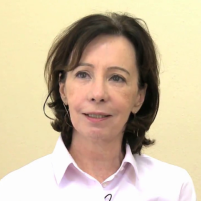 Maria Amalia Andery graduated with a degree in psychology in 1975 at the Catholic University of São Paulo. She received her master's degree in 1977 at the University of Manitoba (Canada) and her doctoral degree at the Catholic University of São Paulo. She is a full professor at the Catholic University of São Paulo and faculty member of the Graduate Program in Experimental Psychology: Behavior analysis. She serves on the editorial boards of Temas em Psicologia (Themes in Psychology) and Revista Brasileira de Análise do Comportamento (Brazilian Journal of Behavior Analysis). Her research interests include verbal behavior and the selection of cultures and cultural practices from a behavioral analytical perspective. Maria Amalia Andery graduated with a degree in psychology in 1975 at the Catholic University of São Paulo. She received her master's degree in 1977 at the University of Manitoba (Canada) and her doctoral degree at the Catholic University of São Paulo. She is a full professor at the Catholic University of São Paulo and faculty member of the Graduate Program in Experimental Psychology: Behavior analysis. She serves on the editorial boards of Temas em Psicologia (Themes in Psychology) and Revista Brasileira de Análise do Comportamento (Brazilian Journal of Behavior Analysis). Her research interests include verbal behavior and the selection of cultures and cultural practices from a behavioral analytical perspective. |
| EMMANUEL TOURINHO (Universidade Federal do Para) |
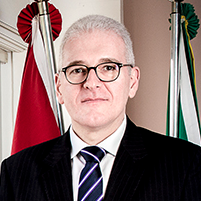 Emmanuel Zagury Tourinho is a Full Professor at the Federal University of Para, Brazil, where he conducts research and supervises students at the Pos-Graduation Program on Behavior Research and Theory. He is also currently the rector of the Federal Unversity of Pará. In the term of office 2017/2018 he was the President of the Brazilian National Association of Rectors of Federal Institutions of Higher Education (Associação Nacional dos Dirigentes das Instituições Federais de Ensino Superior - ANDIFES). His research work focuses on behavioral and cultural selection. Emmanuel Zagury Tourinho is a Full Professor at the Federal University of Para, Brazil, where he conducts research and supervises students at the Pos-Graduation Program on Behavior Research and Theory. He is also currently the rector of the Federal Unversity of Pará. In the term of office 2017/2018 he was the President of the Brazilian National Association of Rectors of Federal Institutions of Higher Education (Associação Nacional dos Dirigentes das Instituições Federais de Ensino Superior - ANDIFES). His research work focuses on behavioral and cultural selection. |
|
| |
| |
|
| Conceptualizing Gang Violence Prevention From the Streets Up |
| Friday, October 9, 2020 |
| 2:00 PM–3:00 PM EDT |
| Online |
| Domain: Systems |
| Chair: Mark A. Mattaini (Jane Addams College of Social Work-University of Illinois at Chicago) |
| CE Instructor: Mark A. Mattaini, Ph.D. |
| Presenting Author: ROBERTO ASPHOLM (University of St. Thomas, Minnesota) |
| Abstract: Street gangs and community violence remain among the most pressing social issues within the urban landscape. Recent spikes in shooting and killings in a number of cities during the ongoing COVID-19 pandemic and following the social upheaval in the wake of George Floyd's killing at the hands of Minneapolis police, moreover, have given the topic of urban violence renewed traction in national public discourse. Yet much of this discourse is based on crude characterizations of gang members, the nature of this violence, and the dynamics fueling it. Unsurprisingly, public officials typically have little idea how to effectively address such violence, and ostensibly evidence-based interventions routinely fail to produce their intended—and often loudly mis-touted—effect.
Drawing on years of community-engaged research on Chicago's South Side and in East St. Louis, Illinois, this presentation will provide clarity as to the complex and interrelated conditions fueling gang membership and collective violence as well as the structural nature of these conditions. Specifically, street gangs constitute a form of social organization that provides material and psychosocial benefits to their members, including modest economic support, protection in navigating a violent social landscape, emotional support, a sense of identity and meaning. Membership in such collectives represents a compelling prospect for young people facing desperate circumstances, ongoing traumas, and few prospects for even a minimally stable life. Within this context, vendetta-style collective violence—that is, gang warfare—constitutes, most centrally, a manifestation of solidarity among group members. Interventions that fail to account for the structural determinants of gang membership and for the solidaristic nature of gang violence are likely to fail, and generally have. The presentation closes with a discussion of an alternative framework for intervention firmly rooted in these realities. |
| Instruction Level: Intermediate |
| Target Audience: Board certified behavior analysts; licensed psychologists; graduate students. |
| Learning Objectives: At the conclusion of the presentation, participants will be able to: (1) identify the complex and interrelated conditions fueling gang membership and collective urban community violence; (2) appraise the structural nature of these conditions; (3) adapt a basic multilevel framework for intervention in urban gang violence. |
| |
| ROBERTO ASPHOLM (University of St. Thomas, Minnesota) |
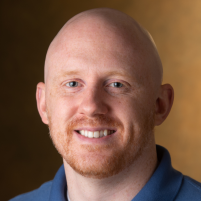 Dr. Roberto Aspholm is an assistant professor of social work at the University of St. Thomas. Dr. Aspholm's research program, which has been directly shaped by his community work with young people in marginalized urban neighborhoods, focuses on street gangs, community violence, and violence prevention. His dissertation research, which he completed at Jane Addams College of Social Work at the University of Illinois at Chicago, explored the shattering of Chicago's corporate black street gangs, their reorganization as independent neighborhood groups during the first decade of the twentieth century, and the implications of these developments for violence prevention on the city's South Side. This and subsequent research form the basis of Dr. Aspholm's recent book Views from the Streets: The Transformation of Gangs and Violence on Chicago's South Side, published by Columbia University Press in February 2020. More recently, Dr. Aspholm has been conducting research related to his involvement in violence prevention and communities organizing initiatives in East St. Louis, Illinois, an industrial suburb of St. Louis and the murder capital of the United States. Dr. Roberto Aspholm is an assistant professor of social work at the University of St. Thomas. Dr. Aspholm's research program, which has been directly shaped by his community work with young people in marginalized urban neighborhoods, focuses on street gangs, community violence, and violence prevention. His dissertation research, which he completed at Jane Addams College of Social Work at the University of Illinois at Chicago, explored the shattering of Chicago's corporate black street gangs, their reorganization as independent neighborhood groups during the first decade of the twentieth century, and the implications of these developments for violence prevention on the city's South Side. This and subsequent research form the basis of Dr. Aspholm's recent book Views from the Streets: The Transformation of Gangs and Violence on Chicago's South Side, published by Columbia University Press in February 2020. More recently, Dr. Aspholm has been conducting research related to his involvement in violence prevention and communities organizing initiatives in East St. Louis, Illinois, an industrial suburb of St. Louis and the murder capital of the United States. |
|
| |
| |
|
| Interdisciplinary Action Supporting Cultures of Social and Environmental Justice |
| Friday, October 9, 2020 |
| 3:30 PM–4:30 PM EDT |
| Online |
| Domain: Conceptual |
| Chair: Mark A. Mattaini (Jane Addams College of Social Work-University of Illinois at Chicago) |
| CE Instructor: Mark Mattaini, Ph.D. |
| Presenting Author: MARK MATTAINI (Jane Addams College of Social Work-University of Illinois at Chicago) |
| Abstract: This presentation will draw from and integrate concepts and data presented by invited speakers throughout this conference, exploring the promise and challenges of transdisciplinary efforts for pursuing a common core goal: sustainable, just, and reinforcing societies. To structure the material that follows, Dr. Mattaini will first outline and exemplify scientifically grounded, operational definitions of social and environmental justice and their interrelation. He will then review promising ecological approaches for supporting cultures striving to operationalize and realize such societies, and the cultural systems analytic methods from which such approaches emerge. Integrating material from the conference presentations, recent developments in the Behaviorists for Social Responsibility’s Matrix Project, and his earlier work in the book Strategic Nonviolent Power: The Science of Satyagraha, the speaker will explore examples of constructional community and social action, policy advocacy, and where necessary, civil disobedience. Given the structural realities present in contemporary societies, including the ethical challenges presented to professionals and scientists in situations of marginalization, inequity, and multiple forms of oppression, the presentation will end with a call for critical self- and collective reflection directed toward reshaping models of community and cultural analysis and intervention, and committing to the actions identified by that reflection. |
| Instruction Level: Intermediate |
| Learning Objectives: At the conclusion of the presentation, participants will be able to: (1) define social and environmental justice in operational terms; (2) explain the advantages of taking a constructional, transdisciplinary approach to social change; (3) identify at least three ethical challenges in efforts supporting social change, and responsible approaches for responding to those challenges. |
| |
| MARK MATTAINI (Jane Addams College of Social Work-University of Illinois at Chicago) |
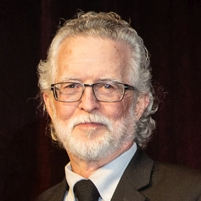 Mark Mattaini, DSW, ACSW, holds an emeritus appointment at Jane Addams College of Social Work, University of Illinois at Chicago (UIC), where he was previously director of the doctoral program. He has developed, implemented, and researched behavioral strategies for individual, family, organizational, community and policy level interventions in the US, Canada, and Latin America, increasingly emphasizing advocacy, accompaniment, and activism in recent years. Consistent with that emphasis, his recent scholarship has focused on nonviolent action supporting social justice, and behavioral systems science at the cultural level. He is a research affiliate of the UIC Center for Research on Violence, and has chaired 25 dissertations related to responses to social issues. Most of his Ph.D. graduates are engaged in research and practice with marginalized populations, including those victimized by—and perpetrating—violence, and in developing evidence-guided supports for young people experiencing homelessness and social exclusion. Dr. Mattaini is author or editor of 13 books, two of the most recent being Strategic Nonviolent Power: The Science of Satyagraha, and Leadership for Cultural Change: Managing Future Well-Being, as well as numerous other publications. Editor of the interdisciplinary journal Behavior and Social Issues, Dr. Mattaini has served on the editorial boards of multiple journals in behavior analysis and social work. ABAI Convention Program Board Coordinator from 2013-2017, he has also been a long-time member of the Board of Planners for Behaviorists for Social Responsibility, the oldest ABAI SIG. Mark Mattaini, DSW, ACSW, holds an emeritus appointment at Jane Addams College of Social Work, University of Illinois at Chicago (UIC), where he was previously director of the doctoral program. He has developed, implemented, and researched behavioral strategies for individual, family, organizational, community and policy level interventions in the US, Canada, and Latin America, increasingly emphasizing advocacy, accompaniment, and activism in recent years. Consistent with that emphasis, his recent scholarship has focused on nonviolent action supporting social justice, and behavioral systems science at the cultural level. He is a research affiliate of the UIC Center for Research on Violence, and has chaired 25 dissertations related to responses to social issues. Most of his Ph.D. graduates are engaged in research and practice with marginalized populations, including those victimized by—and perpetrating—violence, and in developing evidence-guided supports for young people experiencing homelessness and social exclusion. Dr. Mattaini is author or editor of 13 books, two of the most recent being Strategic Nonviolent Power: The Science of Satyagraha, and Leadership for Cultural Change: Managing Future Well-Being, as well as numerous other publications. Editor of the interdisciplinary journal Behavior and Social Issues, Dr. Mattaini has served on the editorial boards of multiple journals in behavior analysis and social work. ABAI Convention Program Board Coordinator from 2013-2017, he has also been a long-time member of the Board of Planners for Behaviorists for Social Responsibility, the oldest ABAI SIG. |
|
| |